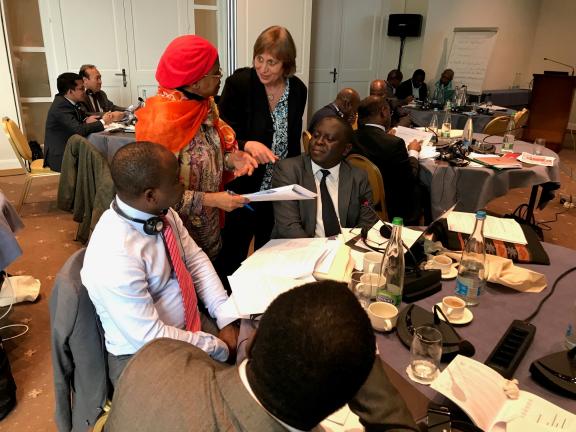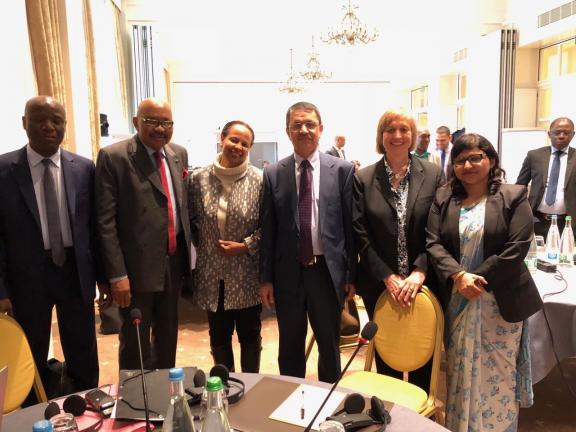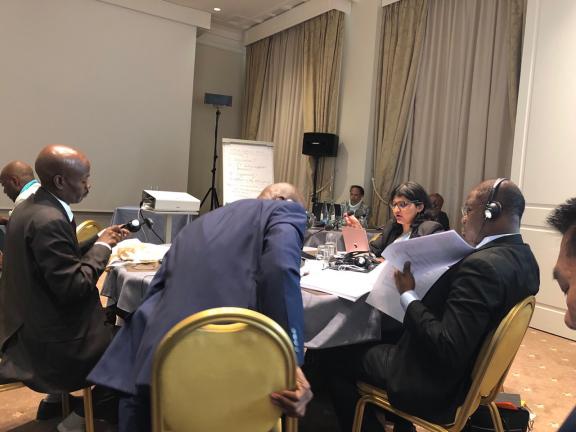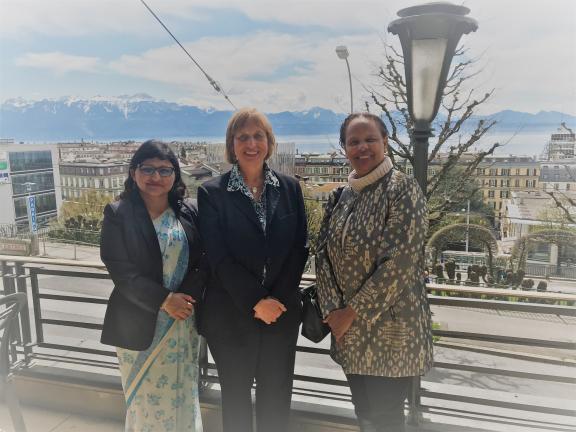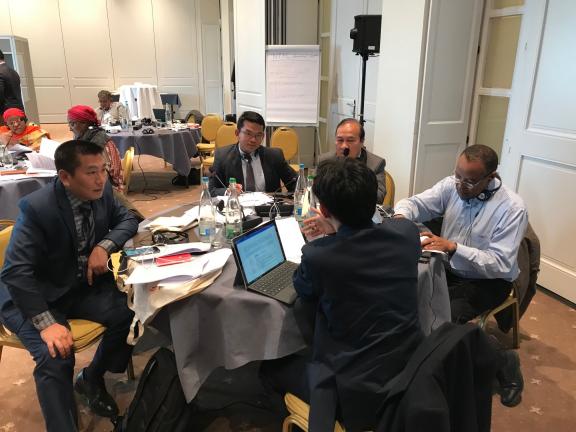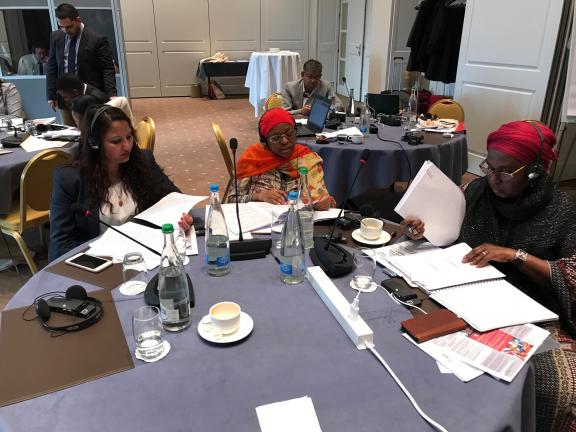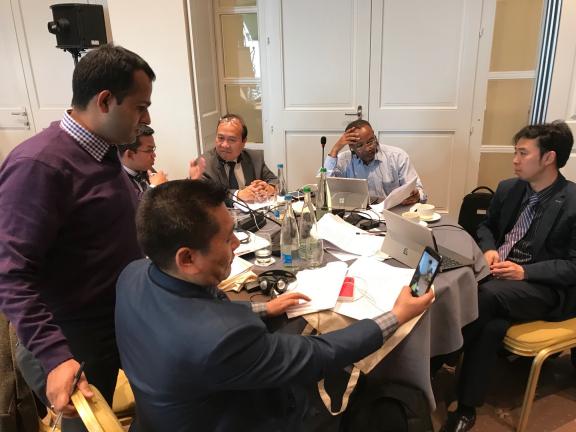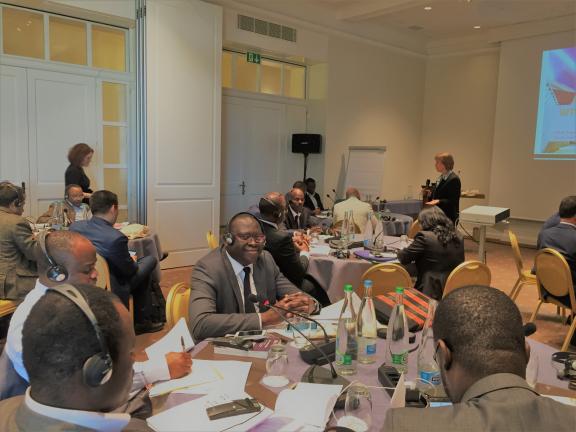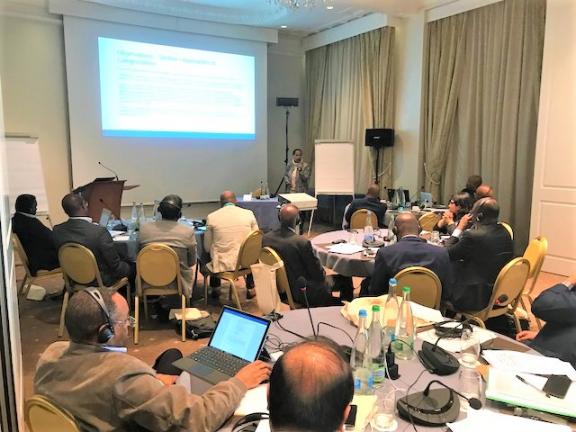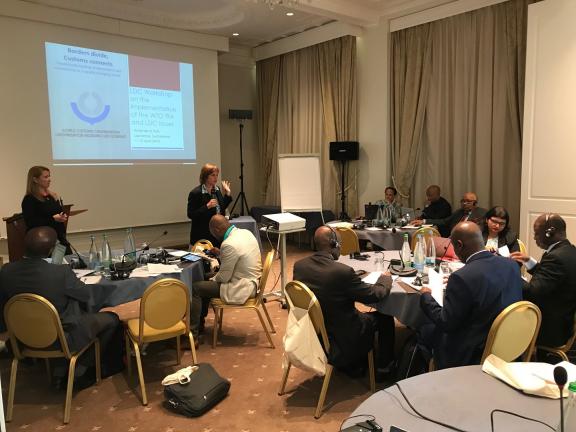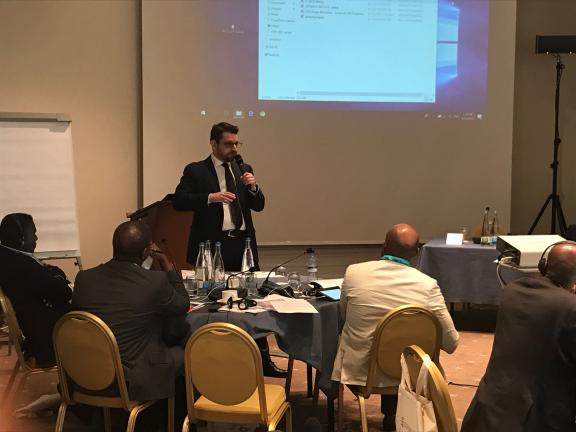TFAF co-hosts LDC Group Workshop on Trade Facilitation Agreement and LDC Issues (EN)


Overview & Outcome
On 12 April 2018, thirty-eight Geneva based LDC Member delegates took part in a workshop on the implementation of the Trade Facilitation Agreement (TFA) at the Hotel de la Paix in Lausanne. The workshop was initiated by the LDC group and was co-organized and co-sponsored by the WTO Trade Facilitation Agreement Facility (TFAF) and SAI (with DFAT support).
The purpose of the workshop was to review the status of ratifications and TFA Section II notifications and discuss implications and solutions where needed. It also aimed to assist delegates to prepare for future notification requirements and enhance awareness of how to find assistance and support for capacity building.
The one day event was opened by H.E Ambassador Léopold Ismael Samba of the Central African Republic, Coordinator of the LDC Group this year and H.E. Ambassador Deepak Dhital of Nepal, LDC TFA focal point.
In his opening address, Ambassador Samba stated that the goal of the workshop was to “see the intervention of experts on this issue, and the active participation of the LDC Group in discussion sessions and in a simulation exercise on category C notifications.” He further stated that “this workshop is important, relevant and necessary today, since the Agreement entered into force at the WTO last year, 22 February 2017. Thus, the mechanism of deadlines for notifications, the identification of needs and partners / donors - with whom we will collaborate to implement the provisions is key.”
Ambassador Dhital stated in his opening address that the coming into effect of the Trade Facilitation Agreement had brought both opportunities and challenges to the LDCs. He said that the Trade Facilitation Agreement Facility (TFAF) should be able to leverage real partnership and coordination for effective implementation of the TFA in the LDCs allowing them to take advantage of all the concessions and flexibilities provided by the agreement. He added that the LDCs should benefit from the reduction of time and cost of cross-border trade and enhance the efficiency of customs procedures. He also emphasized the need to strengthen trade related infrastructure and enhance productive capacity in order to benefit from TFA implementation.
Workshop sessions provided information on the TFA ratification and the Agreement's flexibilities and notification requirements; a brief history of the negotiations from the LDC point of view; the type of assistance and support available through the WTO TFAF, the WCO, UNCTAD and the EIF; and how to approach and prepare the Section II notifications - which was further enforced through a simulation exercise.
The experts leading the sessions included Mr. Tsotetsi Makong of TRAPCA (a former TFA negotiator for Lesotho and the African Group), Ms. Alicia Greenidge advising the LDC Group (also advisor to the ACP Group on the TFA in 2013 and 2014) , Mr. Jonathan Werner from the EIF, Ms. Milena Budimirovic from the WCO, Mr. Poul Hansen from UNCTAD and Ms. Sheri Rosenow from the WTO TFAF. The participants also shared their national experiences and were actively engaged throughout.
The event was closed by Mr. Talha Mahamat Alim of Chad on behalf of Ambassador Samba of CAR, and Ms Mina Aryal. In her closing remarks, Ms Aryal highlighted the importance of effective implementation of the TFA for the LDCs being fundamentally related to the simplification, standardization, harmonization and modernization of border procedures. She emphasized that in order for LDCs to implement their category C provisions, they needed to strengthen cooperation and partnership, mutual accountability and harmonization in mobilizing external resources, which should be based on need and not compromise development priorities. She noted that although this was the first event of its kind; sharing of information and best practices would be institutionalized through regular meetings of the LDC group; with a focus on achieving results.
As of the date of the workshop, 22 LDCs had already ratified the TFA. In addition, 26 LDCs had already presented their notifications for Category A and 19 LDCs had already presented their notifications for Categories B and C.
